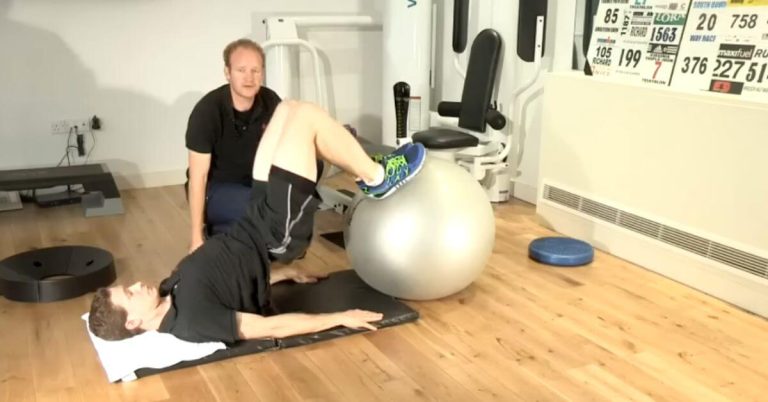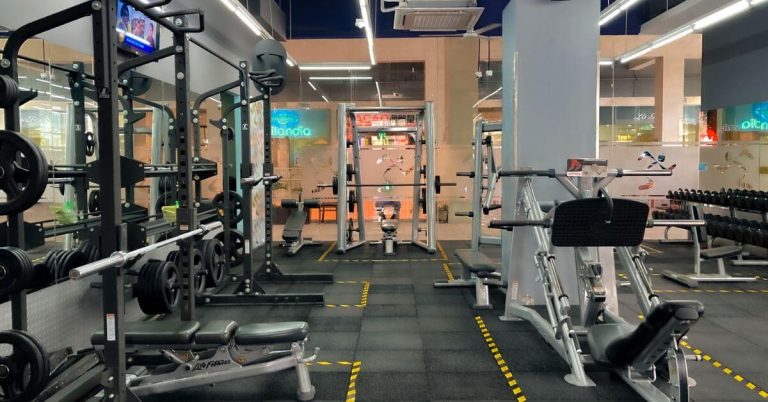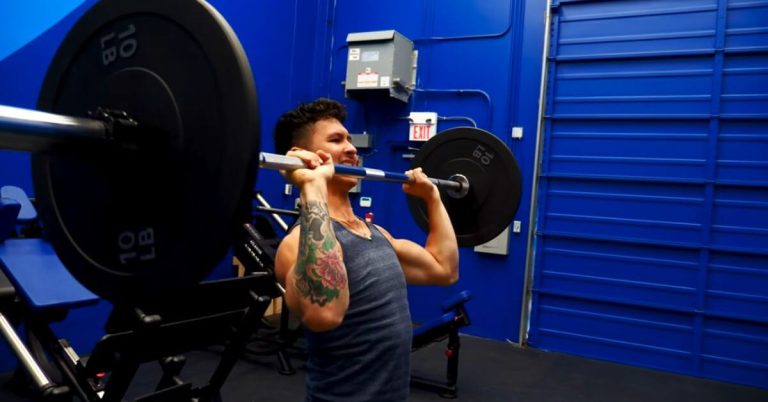Why Does Creatine Make Me Nauseous: Unraveling the Mystery
Last Updated on October 19, 2023 by Justin Harris
Why Does Creatine Make Me Nauseous: Creatine can make you nauseous due to its ability to cause gastrointestinal distress and cramping, especially when taken on an empty stomach. Some individuals may also experience headaches as a side effect of creatine supplementation.
To avoid nausea and other discomfort, it is recommended to take creatine with food, particularly carbohydrates and fats. Additionally, spreading out the doses throughout the day and ensuring sufficient water intake can help prevent stomach cramping and diarrhea associated with excessive creatine supplementation.
See More: How Long Does Creatine Last in Water: Uncovering the Secrets

Overall, understanding the proper timing and dosage of creatine intake can help minimize the likelihood of experiencing nausea or other side effects.
Understanding Creatine And Nausea
What is Creatine and its effects on the body?
Creatine is a naturally occurring compound found in small amounts in certain foods and can also be produced by the body. It is commonly used as a supplement by athletes and bodybuilders to enhance performance and increase muscle mass. However, some people experience nausea after taking creatine.
Exploring the link between Creatine and nausea
The exact cause of creatine-induced nausea is still not entirely understood. It is believed that the high doses of creatine can lead to stomach cramping, diarrhea, and nausea. Taking creatine on an empty stomach can also contribute to gastrointestinal distress and cramping.
To minimize the risk of nausea, it is recommended to take creatine with food, specifically pairing it with carbohydrates and fats. This combination can aid digestion and reduce the chances of gastrointestinal discomfort.
Additionally, spreading out the creatine doses throughout the day and staying well-hydrated can help alleviate the symptoms of nausea. It is also essential to avoid exceeding the recommended dosage to prevent any potential adverse effects.
Overall, while creatine may cause nausea in some individuals, proper dosage, hydration, and taking it with food can help mitigate these side effects.
Factors Contributing To Nausea When Taking Creatine
Creatine can sometimes cause nausea due to several factors. Taking it on an empty stomach, insufficient water intake, and consuming too much creatine at once can lead to gastrointestinal distress. Pairing creatine with carbohydrates and fat, spreading out doses throughout the day, and staying hydrated can help alleviate nausea when taking creatine.
Factors Contributing to Nausea when Taking Creatine:
Dehydration has been identified as a potential factor contributing to nausea when taking creatine supplements. Staying hydrated is crucial when using creatine, as it helps prevent dehydration and minimize the risk of experiencing nausea.
Another consideration for minimizing nausea is the dosage and timing of creatine supplementation. It is recommended to start with a lower dosage and gradually increase it to allow your body to adjust. Taking the creatine supplement with meals can also help minimize the likelihood of experiencing nausea.
In addition, certain individuals may be more prone to experiencing nausea due to personal sensitivity or specific digestive issues. Consulting with a healthcare professional can help identify if any underlying conditions may be contributing to the nausea and provide guidance on how to address it.
Overall, while creatine supplementation is generally well-tolerated, individuals who experience nausea may benefit from adjusting their hydration levels, dosage, and timing of their creatine intake.
Tips To Reduce Nausea Caused By Creatine
Experiencing nausea after taking creatine is a common concern for many individuals. Thankfully, there are several strategies that can help reduce this unpleasant side effect. One effective approach is to focus on hydration. Ensuring you are properly hydrated before, during, and after taking creatine can help prevent nausea.
Additionally, adjusting your diet can also alleviate creatine-induced nausea. Incorporating easily digestible foods into your meals, such as carbohydrates and healthy fats, can make it easier for your body to process creatine and minimize gastrointestinal distress.
It is important to note that taking creatine on an empty stomach can sometimes cause nausea, so pairing it with food is recommended. Furthermore, splitting your creatine dosage into smaller amounts throughout the day, rather than taking it all at once, can also help prevent nausea.
Potential Side Effects Of Creatine And Nausea
| Common side effects associated with Creatine use include stomach cramping, diarrhea, and nausea. These side effects can occur if Creatine is supplemented without sufficient water or if too much Creatine is taken at once. To avoid these symptoms, it is recommended to spread the doses throughout the day and take them with meals. Some people have also reported experiencing Creatine headaches when taking larger amounts of Creatine. However, it is important to note that these side effects are generally gastrointestinal in nature and can be managed by adjusting the dosage and drinking enough water. Additionally, taking Creatine while sick is generally safe and will not harm you. However, it is always recommended to consult with a healthcare professional before making any changes to your supplement routine. |
Conclusion: Maximizing Benefits And Minimizing Nausea
Ensuring proper usage of Creatine for optimal results:
- Take creatine with some carbs and fat to aid digestion and prevent gastrointestinal distress and cramping.
- Drink sufficient water when supplementing with creatine to avoid stomach cramping.
- Avoid taking too much creatine at once, as it can lead to diarrhea and nausea. Spread out the doses throughout the day and take them with meals instead.
- Consider doing a creatine loading phase, which involves increasing creatine intake for a short period to saturate the muscles with creatine. However, be cautious as this can also cause nausea in some individuals.
- If you experience nausea or headaches while taking creatine, consider lowering the dosage or discontinuing its use. Consult with a healthcare professional if necessary.
By following these strategies, you can maximize the benefits of creatine while minimizing the risk of nausea and other side effects. Remember to listen to your body and adjust your creatine usage accordingly for optimal results.
Read Also,
- Are 15 Inch Arms Big?
- Are 15.5 Inch Arms Big?
- Are 16 Inch Calves Big?
- Are 14 Inch Biceps Big?
- Are 14 Inch Arms Big?
- Why Doesn’t Creatine Dissolve?
- Why Does Creatine Powder Jump?
- Why Does My Bicep Cramp When I Flex?
- Why Do Weights Feel Heavier Some Days
- Why Does Weight Feel Heavier Some Days?
Conclusion
Creatine can sometimes cause nausea due to various reasons, including taking it on an empty stomach or in large doses without sufficient water. To avoid feeling sick, consider taking creatine with a meal that contains carbohydrates and fats. Additionally, spreading out the dosage throughout the day and staying hydrated can help alleviate gastrointestinal distress.
Remember to listen to your body and adjust your creatine intake accordingly to enjoy its benefits without the unwanted side effects.






